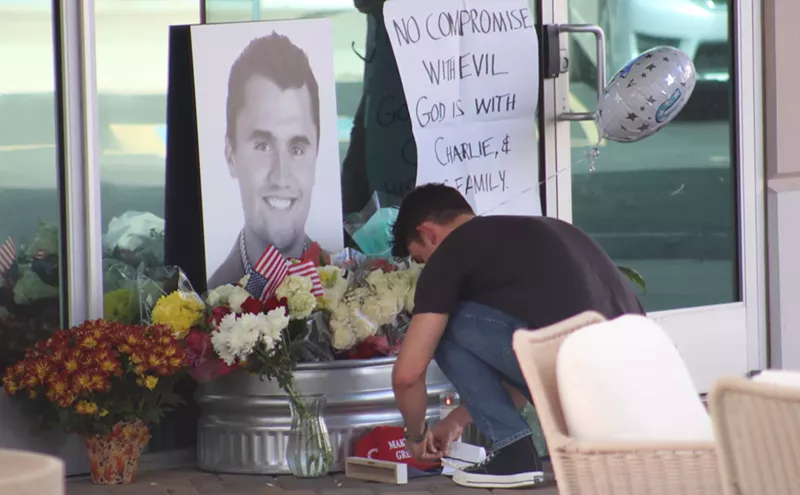Unlike the hero of The Truman Show, the star of EDtv knows that he's on television: In exchange for a hefty payment, he allows producers for the San Francisco-based True TV cable channel to broadcast his life live, 24 hours a day. The prime mover of the series, a True TV executive (Ellen DeGeneres), acknowledges her show's predecessors (PBS's An American Family and MTV's The Real World), but intends to go beyond them. She vows to present uncensored, unedited action: she hopes to rouse interest in a lineup so tired that the Gardening Channel beats it regularly in the ratings. In Capraesque fashion, this whip-smart exec eventually develops a guilty conscience, but until then DeGeneres brings more snap to her lines than she did on her own TV show. And the filmmakers behind EDtv keep pace with web surfers who've seen real-life chronicles unfolding in real time on the Internet.
After the squeaky clean The Truman Show, it comes as a relief that EDtv doesn't duck the obvious questions, like what happens when the hero goes to the bathroom, or has sex. (As it works out, he gets private time to relieve himself, but not to make love.) Ed Pekurny (Matthew McConaughey) doesn't set out to be a TV star. He gets discovered when he attempts to bolster the chances of his exhibitionist brother, Ray (Woody Harrelson), during an audition taping at a San Francisco bar. What's pleasing is the comic spectacle of Ed, his folks, the team at True TV, and the people in the audience responding in valiant, goofy, sappy, and vain ways to a dehumanizing process. What's frustrating is the moviemakers' tendency to force them all into sitcom "closure" without taking the characters to the limit.
The most pungent elements of the movie are the brothers' relationship, the casting of McConaughey and Harrelson, and their interplay as performers. Ray, who services video equipment, is an out-and-out loon; Ed clerks at a North Beach video store and is a covert loon with sly seductive powers. If director Ron Howard and screenwriters Lowell Ganz and Babaloo Mandel had used these two guys' chemistry to fuel the film, instead of diluting it with halfhearted romance and broad turns about families behaving badly, they might have ended up with a fraternal love-hate classic instead of a mildly diverting burlesque.
The filmmakers have a handle on the symbiotic relationship in which an apparent lout like Ray and a seemingly sensitive soul like Ed really are mates under the skin. Ray is a hustler and an easy lay. He ridicules his sister and her inept lounge-singer boyfriend just to juice up his brother's show; he seizes every chance to promote his dream of establishing "Ray's Gym"; and he immediately takes advantage of his newfound fame by cheating on his girlfriend Shari (Jenna Elfman). Yet he doesn't mean to hurt anybody.
Ray thinks "EDtv" is the family's ticket out of Nowhereland. After all, Ray and Ed are two guys in their 30s who just clock their time at work, shoot pool, drink beer and keep trim for a fight that never comes. Any break in the limbo must be a sign of hope. Ed is like Ray on Ritalin. Although he's more low-key, more centered, Ed has his own streak of showmanship--that's one reason DeGeneres and her gang like him. The Pekurnys hail from East Texas, and Ed demonstrates that he can turn his rural accent on or off like a wily country lawyer or a congressman.
Of course, to enjoy the film at all you have to accept the sitcom logic that a good-looking fellow like Ed can quip as well as anyone at True TV and settle for a low-paying job at a video store. Still, EDtv is entertaining whenever Harrelson and McConaughey team up or face off. Whether as Larry Flynt or as the Life Force in The Hi-Lo Country, Harrelson embodies both the humor and the danger of relentless push. As Ray he manages to be a lovable egomaniac. He acts as if he feels that it's his duty to be a cartoon stud, even if he's smart enough to know that the role is self-destructive. His skewed glare, like a bent laser, contrasts uproariously with McConaughey's sweet gleam as Ed. McConaughey seemed to find his celluloid footing in last year's The Newton Boys, and in EDtv he appears at home as a modest man who sees the fun in exploitation and is briefly blinded by it. Both as an actor and as Ed the budding TV character, he knows how to take genuine titillation or delight and italicize it for the camera, to potent farcical effect. He expresses the unruly streaks in common decency.
Director Howard and writers Ganz and Mandel are at their sharpest when they draw the ways Ed's family and the public initially react to True TV. His mother (Sally Kirkland) turns theatrical (she sets visions of Blanche Du Bois spinning in DeGeneres' head), his frail stepdad (Martin Landau) remains determinedly down-to-earth (he tells Ed he'd yell for Ed's mom himself, but he'd die), and his mystery dad (Dennis Hopper) suddenly shows up at his door. At one point, someone pushes a promotional CD into Ed's hands and says his band has a blind guy in it and is called "Not All of Us Can See." For a while, the ensemble resembles the giddy everyday grotesques from a Preston Sturges movie.
Pundit-mania heats up: Harry Shearer, who performed a similar function in The Truman Show, hosts panels with the likes of Arianna Huffington and Michael Moore. And polling goes into overdrive. The videophiles who rooted for Elfman's Shari to dump Ray for Ed soon tell USA Today that she isn't good enough for him--they prefer Jill (Elizabeth Hurley), a glamorous aspiring actress. You can see why Shari, a strapping UPS gal without airs or illusions, finds Ed attractive and why she hooks up with him after Ray cheats on her.
It's too bad that their bond obstructs the comedy. For one thing, Ray ceases to be central to the action. And if that USA Today poll is one funny idea, it's also a dire turning point. Soon after it appears, Shari beats a retreat, Ed loses his bearings, his mom, dad, and stepdad grow nuttier, and the movie instructs us on what we already know about the wages of fame. Shari begins to symbolize unspoiled, media-free humanity.
Howard, Ganz, and Mandel have a Three Bears view of comic ingredients: nothing too cold, nothing too hot. (Even Shari learns to compromise.) So the director and his writers ultimately reduce the drama to Ed clearing his head and cementing his love with the people closest to him: Shari, Ray, and--since father-son rapprochement is key to family entertainment in the Nineties--his stepdad, Al.
EDtv sets up Ed as a man of the people, then flirts with portraying him as a victim of the people. It's the same sort of dead end Capra ran up against in Meet John Doe. Howard is a lot more deft at depicting the onlookers than Peter Weir was in The Truman Show; this movie's fluctuations mirror the fleeting allegiances of our media-permeated lives more acutely than that pristine fantasy. But Howard still has a hard time persuading us that the TV masses will react positively to his film's happy ending.
To me, the film makes sense--perhaps inadvertently--as a fable about privacy in the era of Kenneth Starr. The True TV czar (Rob Reiner) decides he has unlimited access to Ed's life. His cameras uncover one family scandal after another, most of which come about via video entrapment. The public maintains a strained devotion to Ed even after he proves to be a hapless lover. The only way Ed can regain control of his life is with some Larry Flynt-like scandal-mongering of his own. The resolution leaves the House of Pekurny standing. By the end the movie audience, like the electorate, is less satisfied than strung-out and exhausted.
EDtv
Directed by Ron Howard; with Jenna Elfman and Woody Harrelson.
Rated








